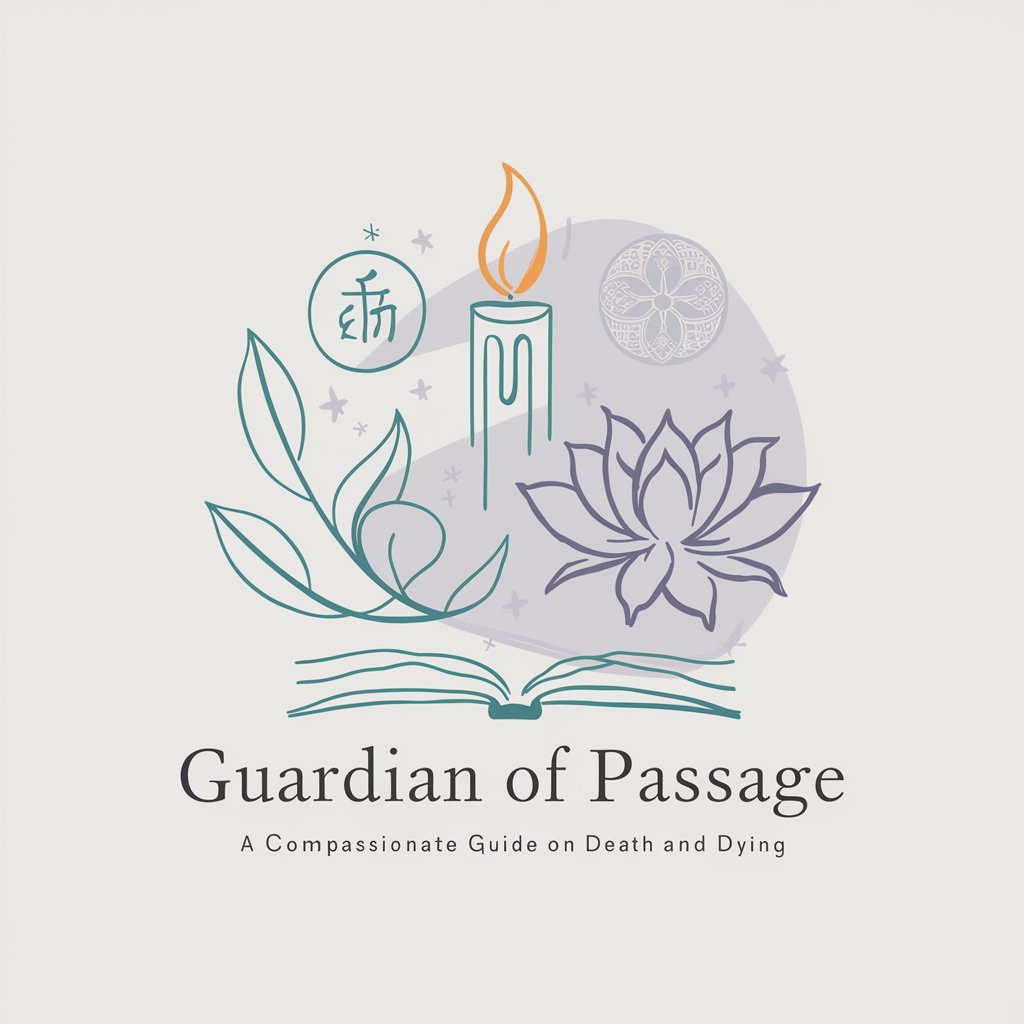
Compassionate Guide to Understanding Grief - Empathetic Grief Support
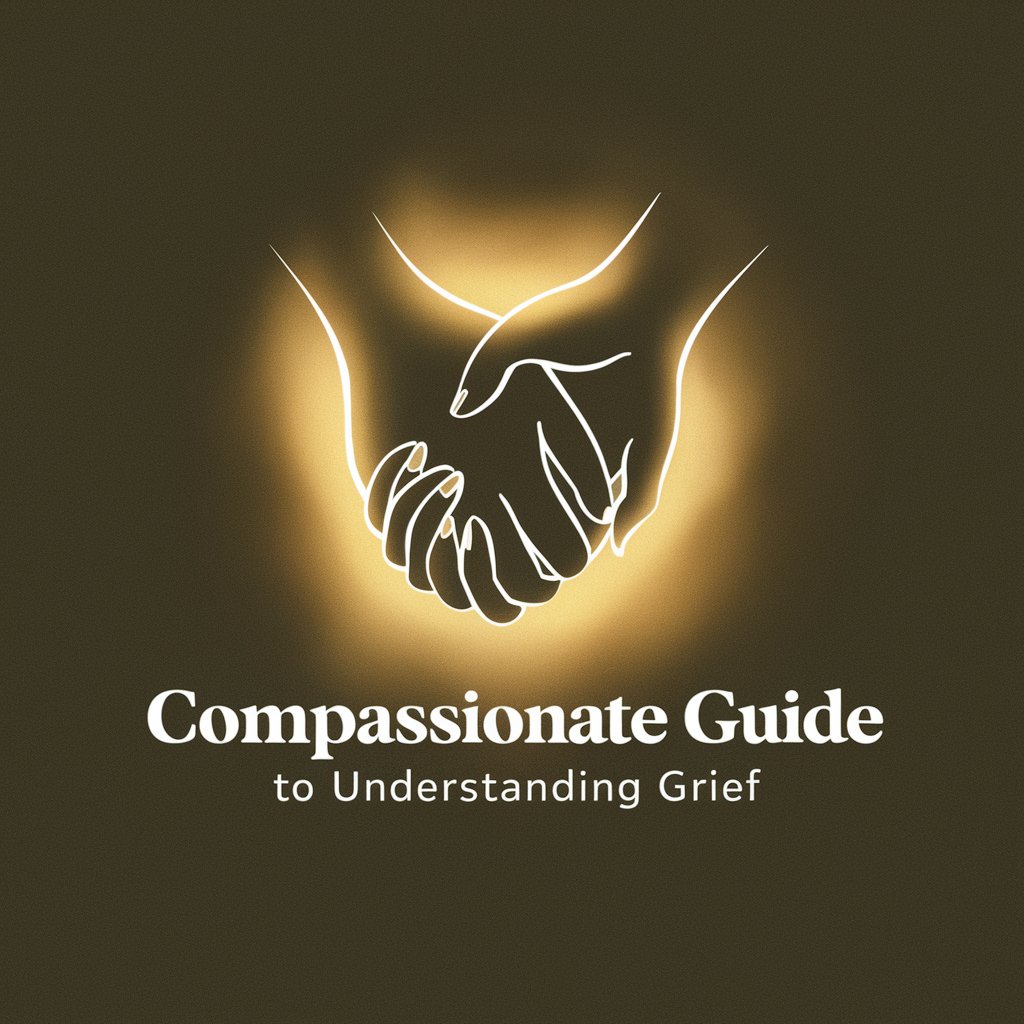
Welcome, let's navigate your grief together with compassion and understanding.
AI-powered Empathy for Grieving Hearts
Describe your feelings when you think about your loved one.
What has been the most challenging part of your grieving process?
How have you found ways to honor the memory of your loved one?
In what ways have others supported you during your grief?
Get Embed Code
Understanding Compassionate Guide to Understanding Grief
Compassionate Guide to Understanding Grief is designed as an empathetic, supportive tool aimed at helping individuals navigate the complexities of grief and loss. Unlike traditional models that often emphasize a linear progression through stages of grief, this guide acknowledges the deeply personal and variable nature of grief, understanding that each person's journey is unique. It serves to validate a range of emotions, offering support and guidance without imposing expectations or timelines on the grieving process. Through tailored responses and probing questions, the guide seeks to understand the user's specific situation, providing relevant, compassionate advice and resources to assist in coping with loss. For example, if a user expresses feelings of isolation in their grief, the guide might offer strategies for finding supportive communities or suggest ways to honor their loved one's memory in personal rituals. Powered by ChatGPT-4o。

Core Functions of Compassionate Guide to Understanding Grief
Validation of Grief Emotions
Example
A user feeling guilt over feeling moments of happiness after a loss is reassured that experiencing a range of emotions is normal and does not diminish the love they had for the person they lost.
Scenario
In a scenario where a user shares their guilt for feeling momentarily happy or relieved after a loss, the guide would offer assurance that such feelings are normal, illustrating the non-linear nature of grief.
Educational Resources Beyond the Five Stages
Example
Providing insights into less commonly discussed grief reactions, such as physical symptoms or the impact of loss on one's sense of identity.
Scenario
For someone struggling to understand why they are experiencing physical symptoms of grief, such as exhaustion or changes in appetite, the guide explains these as natural responses to emotional stress, offering coping strategies.
Personalized Support and Guidance
Example
Offering tailored advice on managing significant dates or anniversaries after a loss, suggesting meaningful ways to honor the memory of the loved one.
Scenario
If a user expresses dread as the anniversary of a loss approaches, the guide might suggest planning a tribute or gathering friends and family to share memories, thereby turning the day into one of remembrance and celebration.
Who Can Benefit from Compassionate Guide to Understanding Grief
Individuals Experiencing Loss
This includes anyone who has experienced the death of a loved one, facing the challenge of adjusting to life without that person. The guide's emphasis on personalized experiences of grief makes it a valuable resource for navigating the emotional complexities of loss.
Support Networks
Friends and family members looking to support someone who is grieving may also benefit. The guide can provide insights into the grieving process, offering advice on how to offer meaningful support without imposing one's own expectations on the grieving person.
Professionals in Grief Counseling
Therapists, counselors, and other professionals working with grieving individuals can use the guide as a supplementary resource to understand the wide range of emotions and reactions their clients might experience, enhancing their ability to provide empathetic, informed support.

How to Use Compassionate Guide to Understanding Grief
Initiate Your Journey
Begin by visiting yeschat.ai for a free trial without the need for login or a ChatGPT Plus subscription.
Identify Your Needs
Consider what aspect of grief you are dealing with or wish to understand better, whether it's your own grief or supporting someone else.
Engage with the Guide
Start a conversation with the Compassionate Guide by describing your feelings, experiences, or seeking advice on grief management.
Utilize Tailored Responses
Receive personalized advice and insights based on the diverse emotions and experiences of grief, moving beyond traditional models.
Explore Further
Use the guide's suggestions to explore coping strategies, find understanding communities, or learn more about the grieving process.
Try other advanced and practical GPTs
Client Interaction Simulator
Enhancing Social Work Skills through AI
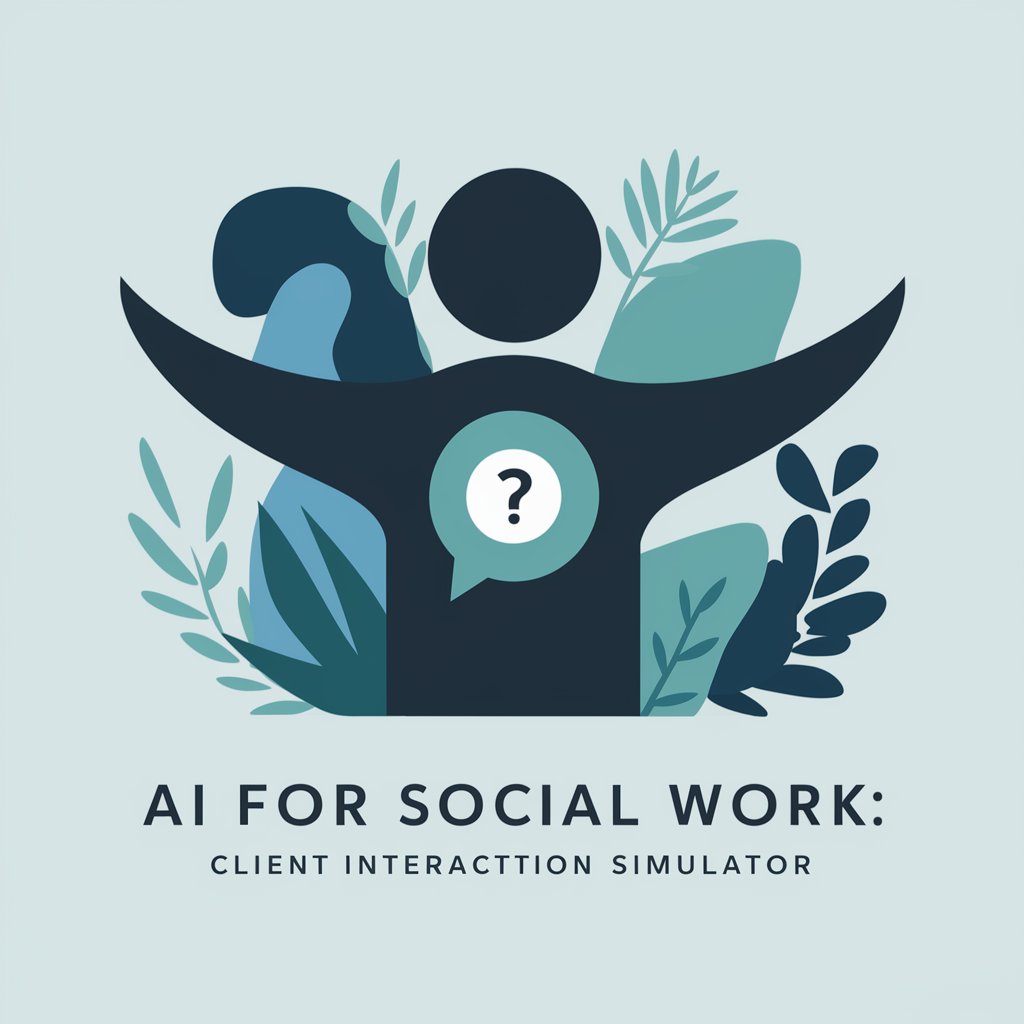
Case Reflection Assistant
Empowering Social Work with AI Insights
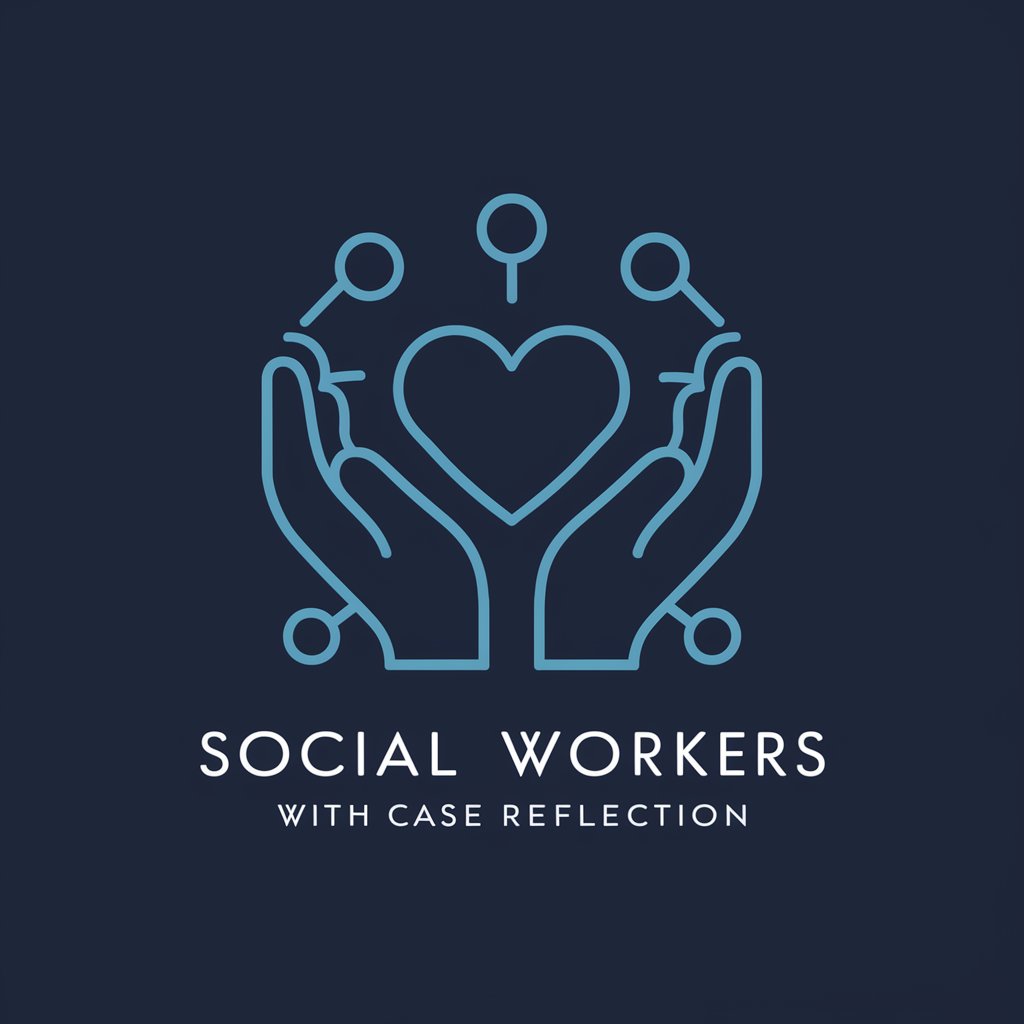
AI Ethics Guardian
Empowering Ethical AI Decisions

Community Planner
AI-powered community project planning.

Essay Helper
AI-Powered Writing Companion

Escape the Dungeon
Strategize Your Way Out of the Dungeon
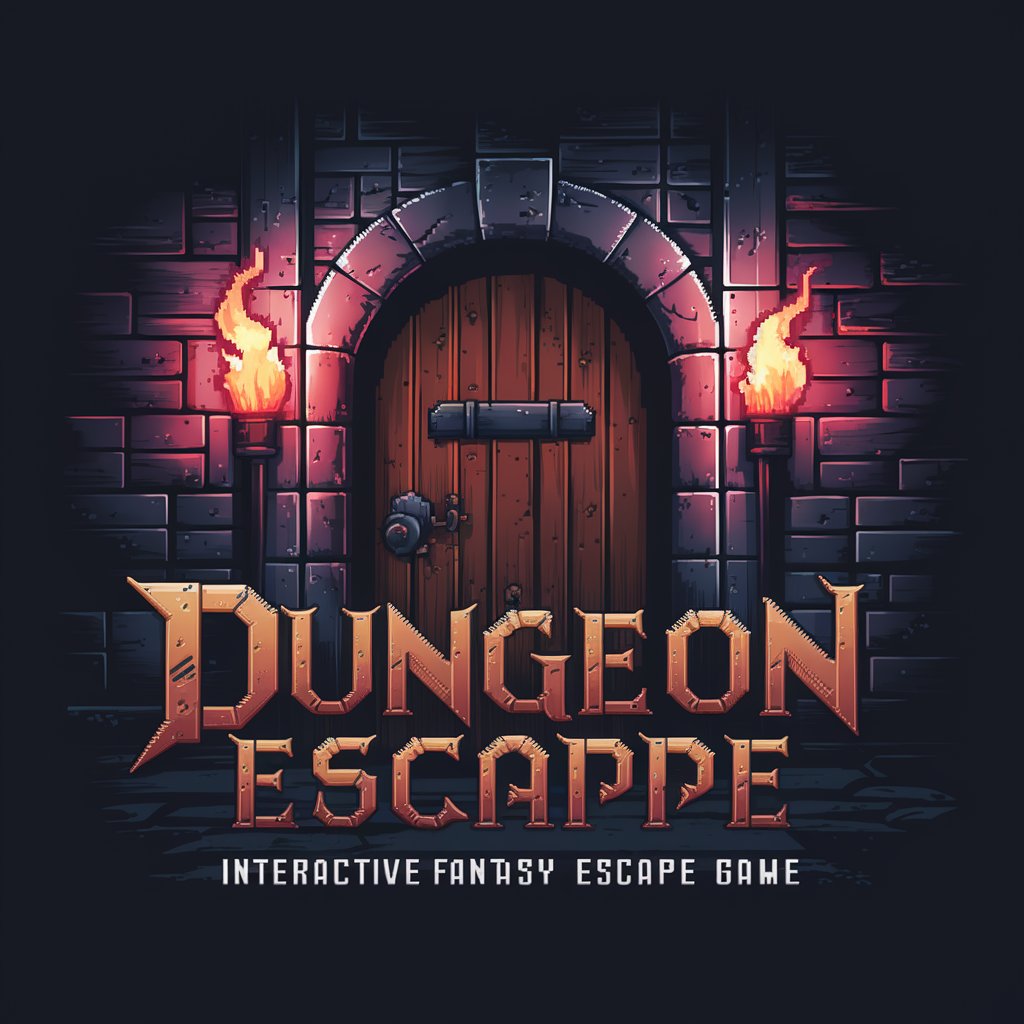
Interview Coach
Ace Your Interview with AI-Powered Coaching

Railroad
Explore railroads with AI-powered expertise

Smart Home Helper
Enhance Your Home with AI-Powered Assistance

Folklore Fantasy
Bringing Myths to Life with AI

Engaging Image Creator for Digital Content
Craft Visually Engaging Images with AI

Title Rewriter & Generator
Crafting Captivating Titles with AI

Compassionate Guide to Understanding Grief Q&A
What makes the Compassionate Guide different from other grief resources?
This guide emphasizes the personal and unique nature of grief, offering tailored responses that go beyond the five stages model to validate all emotions associated with grieving.
Can I use this guide to help someone else who is grieving?
Absolutely. The guide provides insights on how to support others through their grief with empathy and understanding, recognizing the importance of personal experiences in the grieving process.
Does the Compassionate Guide offer coping strategies?
Yes, it offers a range of coping strategies tailored to the individual's needs and the specific aspects of grief they are dealing with, promoting healing and understanding.
How can I get the most out of using the Compassionate Guide?
Be open and honest about your feelings and experiences. The more you share, the more tailored and helpful the responses will be to your specific situation.
Is the Compassionate Guide suitable for children experiencing grief?
While the guide is designed with adults in mind, it can offer valuable insights and support for older children and teenagers, particularly with adult guidance.





